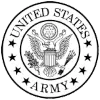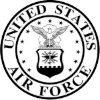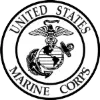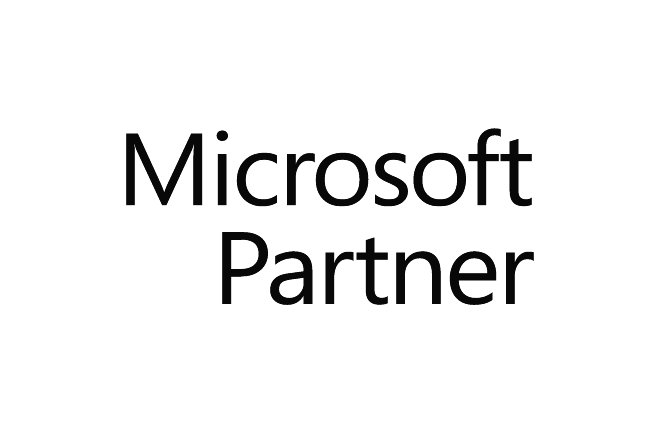





Available Power Platform Instructor-Led Courses
Available Power Platform On-Demand Courses
Virtual Live Instructor
Financing Available
Free Repeat
We offer private group training services for organizations looking to upskill their team members with a live-instructor.
Training options include:
Learn more about how Private Group Training from Business Computer Skills can help your team.
Power Platform FAQ
What is Power Platform
Microsoft Power Automate (formerly known as Microsoft Flow) is a cloud-based service that allows users to automate workflows between apps and services. It integrates different applications, services, and data sources, allowing businesses and individuals to create automated processes without needing extensive programming knowledge. Power Automate is part of the broader Microsoft Power Platform, which also includes Power BI (for analytics) and Power Apps (for low-code app development).
Key Components of Power Automate
- Flows: The core building blocks of Power Automate. A flow defines the process or workflow being automated. There are several types of flows:
- Automated Flows: Triggered automatically based on events, such as when a new email arrives or when a file is updated.
- Button Flows: Manual flows triggered by the user, typically through a button in the Power Automate mobile app or web portal.
- Scheduled Flows: These run at a set time, such as daily or weekly, to carry out routine tasks.
- Business Process Flows: Used to guide users through defined stages in business processes, ensuring consistency and compliance in data collection and task execution.
- UI Flows: Robotic process automation (RPA) flows that allow automation of tasks on legacy systems or web applications that don't support APIs by simulating user actions.
- Triggers: Each flow begins with a trigger. Triggers initiate the flow when a certain event occurs. Power Automate offers a wide variety of triggers, such as:
- Receiving an email in Outlook
- Adding a new row in an Excel file
- Submitting a form in Microsoft Forms
- Creating a new record in a SharePoint list
- A user clicks a button or a schedule is reached
- Actions: After a flow is triggered, it performs one or more actions. Actions define what happens after the trigger. These can include:
- Sending an email
- Creating or updating a record in a database
- Posting a message to Microsoft Teams
- Saving files to cloud storage (like OneDrive or SharePoint)
- Starting an approval process
- Connectors: Power Automate can integrate with many third-party applications and Microsoft services via connectors. These connectors enable Power Automate to communicate with various applications (e.g., Google Drive, Salesforce, Twitter, Dropbox) and cloud services (Azure, Dynamics 365).
- Standard Connectors: These include services like Microsoft 365 (Outlook, Excel, SharePoint, etc.) and social media platforms.
- Premium Connectors: These are specialized connectors for more complex services such as Azure services, third-party CRM systems (e.g., Salesforce), and more.
- Templates: Power Automate provides pre-built templates to help users create common workflows without starting from scratch. These templates range from simple tasks like sending a notification when a specific email arrives to more complex scenarios like multi-step approval processes.
- Integration with Other Microsoft Tools: Power Automate is tightly integrated with other Microsoft tools, such as:
- Power BI: Users can automate data refreshes and other reporting tasks.
- Power Apps: Power Automate can trigger workflows from custom apps built using Power Apps.
- Microsoft Teams: Teams can be used as a collaboration hub where notifications from automated workflows are posted.
Use Cases for Microsoft Power Automate
- Email Automation: Automate responses, forward important emails, or extract information from incoming emails and save it elsewhere.
- Document Management: Automatically move, rename, or organize files across OneDrive, SharePoint, and other cloud storage platforms.
- Approval Processes: Implement multi-step approval processes, where documents or requests can be approved by different stakeholders.
- Task Management: Automatically create tasks in apps like Microsoft To Do or Planner when certain events occur (e.g., a new email arrives, a form is submitted).
- Notifications: Receive alerts or notifications when specific events happen, such as a new CRM lead or a low stock alert in inventory management software.
- Data Collection: Automate the collection of data from surveys, forms, or emails, and store it in databases or Excel files.
Benefits of Using Microsoft Power Automate
- Efficiency: Automating repetitive tasks saves time and reduces human error, freeing employees to focus on more complex and value-added activities.
- Integration Across Platforms: Power Automate can seamlessly integrate Microsoft applications and third-party services, providing a unified workflow across different platforms.
- Low-Code/No-Code Development: Users with little to no programming experience can create sophisticated workflows thanks to its user-friendly, drag-and-drop interface.
- Scalability: Power Automate can scale with the needs of the business. Whether automating simple personal tasks or complex enterprise-wide workflows, it adapts to different use cases.
- Accessibility: Power Automate can be accessed from the web, mobile devices, or even integrated into existing Microsoft applications like Teams and SharePoint.
Types of Power Automate Plans
Microsoft offers different plans based on business needs, such as:
- Free and Basic Plans: Ideal for small businesses or individuals looking to automate simple workflows.
- Enterprise Plans: These plans offer advanced features, premium connectors, and additional capabilities, including RPA and AI-based automation.
Example Scenarios
- Marketing: A flow can automatically upload new leads from a web form to a CRM system, send a welcome email to the lead, and notify the marketing team on Microsoft Teams.
- IT Management: Automate the creation of user accounts in Active Directory when a new employee starts or send automatic system alerts when servers go down.
- Sales: Automate the process of sending quotes to customers and logging the interaction in the companyís CRM system.
Robotic Process Automation (RPA) in Power Automate
With UI Flows, Power Automate also supports RPA, which enables automation of tasks in legacy or web applications that do not have available APIs. By recording and playing back manual steps, UI Flows can automate repetitive tasks across applications where traditional integration is not possible.
AI Builder Integration
Power Automate includes AI Builder, which allows users to incorporate artificial intelligence into their flows, such as recognizing objects in images, processing forms, and analyzing sentiment in customer feedback.
Microsoft Power Automate Certifications Available in 2024
In 2024, there are several key certifications for Microsoft Power Automate:
1. Microsoft Certified: Power Automate RPA Developer Associate
This certification is for professionals who specialize in robotic process automation (RPA) using Power Automate. To earn this certification, you need to pass the PL-500 exam, which tests your ability to automate repetitive tasks using a variety of automation tools like desktop flows, cloud flows, and integration with APIs and databases. It covers designing, developing, and managing automations. This certification is ideal for developers experienced in using scripting languages like VBScript and JavaScript and tools like Microsoft Dataverse and Power Platform components.
Source: Microsoft Learn - Power Automate RPA Developer
2. Microsoft Certified: Power Platform Functional Consultant
This certification focuses on using Microsoft Power Platform to design and create solutions for process automation, including Power Automate flows. It emphasizes skills like configuring Dataverse, developing apps, and managing environments. The associated exam is PL-200.
Source: Microsoft Learn - Power Platform Functional Consultant
3. Microsoft Certified: Power Platform Developer Associate
This certification is more advanced and covers designing, developing, and troubleshooting complex Power Automate solutions alongside other Power Platform components like Power Apps and Dataverse. It is geared toward developers who can integrate various systems and handle advanced business logic.
Source: Microsoft Learn - Power Platform Developer Associate
Jobs that use Microsoft Power Automate
Microsoft Power Automate is widely used in various industries to automate workflows, streamline business processes, and integrate systems. Here are some job roles that commonly require or benefit from proficiency with Microsoft Power Automate:
1. Business Analyst
- Responsibilities: Analyze business processes and design automation solutions using Power Automate to optimize workflows and improve efficiency.
- Power Automate Use: Automating repetitive tasks, integrating different business applications, and generating reports.
2. Process Automation Specialist
- Responsibilities: Design and implement process automation solutions across departments to enhance operational efficiency.
- Power Automate Use: Creating complex workflows to automate end-to-end business processes, approvals, and notifications.
3. IT Support Specialist
- Responsibilities: Provide support for IT systems and automate common IT processes such as ticketing, onboarding, and incident management.
- Power Automate Use: Automating routine IT tasks like user account management, resetting passwords, or sending automated notifications.
4. SharePoint Administrator
- Responsibilities: Manage and optimize SharePoint environments for document management and collaboration.
- Power Automate Use: Automating document approvals, notifications, and integrating SharePoint with other apps like Teams, Outlook, and OneDrive.
5. Data Analyst
- Responsibilities: Collect, process, and analyze data to drive business decisions.
- Power Automate Use: Automating data extraction, report generation, and integrating data workflows between various applications like Excel, Power BI, and CRM systems.
6. HR Specialist
- Responsibilities: Manage recruitment, employee onboarding, and HR compliance tasks.
- Power Automate Use: Automating onboarding processes, leave requests, performance reviews, and document generation.
7. Sales Operations Specialist
- Responsibilities: Streamline sales processes, manage CRM, and support the sales team.
- Power Automate Use: Automating CRM updates, lead tracking, sending notifications, and sales reporting.
8. Project Manager
- Responsibilities: Manage projects, track progress, and ensure timely completion of tasks.
- Power Automate Use: Automating task assignments, progress tracking, and project reporting.
9. Marketing Specialist
- Responsibilities: Manage marketing campaigns, track engagement, and analyze data.
- Power Automate Use: Automating email marketing workflows, social media posts, and customer feedback collection.
10. Finance/Accounting Professional
- Responsibilities: Manage financial operations, accounting, and reporting.
- Power Automate Use: Automating invoice processing, financial approvals, and report generation.
We offer live-instructor group training classes for your team.
Upskill your team from the comfort of your office or online.
Benefits of Group Training Include:
- Experienced Professional Instructor Trains Your Team
- Content Focused On Your Team's Needs
- Convenient Scheduling and Class Setup
- Significant Per/Student Cost Savings
- Online, On-Site and Blended Options Available
Boulder Location FAQ
Boulder is an interesting place. Here is some information to help you learn more about Boulder
Ten interesting facts about Boulder, CO
- Boulder is renowned for its stunning natural setting at the base of the Rocky Mountains (~0.0 miles from the address).
- The city is home to a high concentration of research institutions and tech startups (~0.0 miles).
- Boulder boasts over 300 days of sunshine per year (~0.0 miles), making it ideal for outdoor activities.
- The iconic Flatirons rock formations provide a dramatic backdrop (~0.0 miles) to the cityscape.
- Boulder has a rich history in environmental sustainability and green living (~0.0 miles).
- The University of Colorado Boulder is one of the top public universities in the nation (~0.0 miles).
- Boulder was one of the first cities to embrace organic farming and local food movements (~0.0 miles).
- The city hosts numerous festivals and cultural events throughout the year (~0.0 miles).
- Boulder has been ranked multiple times as one of the healthiest cities in the United States (~0.0 miles).
- Boulder residents enjoy an active lifestyle with miles of trails and parks (~0.0 miles).
Ten Fun things to do in Boulder, CO
- Visit the scenic Chautauqua Park (900 Baseline Road, ~1.2 miles from 1434 Spruce Street) – Enjoy hiking and panoramic views of the Flatirons.
- Stroll along Pearl Street Mall (Pearl Street, ~0.8 miles) – A vibrant pedestrian street with shops and street performances.
- Explore Boulder Creek Path (Boulder Creek, ~1.0 mile) – A lovely trail alongside the creek ideal for walking or biking.
- Discover the Boulder Museum of Contemporary Art (2001 Arapahoe Avenue, ~1.5 miles) – Showcasing modern art exhibits.
- Tour the University of Colorado Boulder Campus (CU Boulder, ~2.0 miles) – A historic campus with beautiful architecture.
- Visit the Fiske Planetarium (Cecil B. Day Science Center, ~2.1 miles) – Experience engaging astronomical shows.
- Relax at the Boulder Dushanbe Teahouse (1770 13th Street, ~1.7 miles) – A unique teahouse with intricate hand-carved details.
- Enjoy nature at NCAR (National Center for Atmospheric Research, ~3.0 miles) – Tour the facility and learn about climate science.
- Cycle the Boulder Loop (Local bike trails, ~1.2 miles) – A favorite route for cyclists of all levels.
- Sample local craft at a Boulder brewery tour (various locations, ~1.5 miles) – Explore award-winning local brews.
Ten Restaurants near Boulder, CO
- The Kitchen (2600 14th Street, ~0.5 miles) – A farm-to-table restaurant offering seasonal American dishes.
- Oak at Fourteenth (1414 14th Street, ~0.7 miles) – Contemporary American fare with local ingredients.
- Santorini (1925 Pearl Street, ~0.8 miles) – Mediterranean flavors in a cozy, vibrant setting.
- Blackbelly Market (1607 Conestoga Street, ~1.0 mile) – A butcher shop and eatery featuring house-made charcuterie.
- Flagstaff House (600 Flagstaff Road, ~2.5 miles) – Upscale dining with spectacular views of the valley.
- Zoe Ma Ma (1845 13th Street, ~0.6 miles) – Casual eatery serving creative Asian-inspired dishes.
- Frasca Food & Wine (500 13th Street, ~0.9 miles) – Northern Italian cuisine in an elegant setting.
- Mountain Sun Pub & Brewery (2035 13th Street, ~1.1 miles) – Local pub known for craft brews and hearty meals.
- Franco (1600 Pearl Street, ~0.8 miles) – Italian classics served in a contemporary space.
- New Belgium Hub (1555 13th Street, ~0.7 miles) – A vibrant spot featuring local beers and creative snacks.
Ten Hotels near Boulder, CO
- St Julien Hotel & Spa (1335 Pearl Street, ~0.6 miles) – A luxury hotel with a full-service spa and elegant rooms.
- Boulder Marriott (1700 28th Street, ~1.8 miles) – Contemporary accommodations with modern amenities.
- The Boulderado (2115 14th Street, ~1.2 miles) – Historic hotel with charming, vintage decor.
- Hotel Boulderado (2115 14th Street, ~1.2 miles) – Iconic lodging offering timeless elegance.
- Hyatt Place Boulder (1660 Pearl Street, ~0.9 miles) – Modern hotel with spacious rooms and city views.
- Residence Inn by Marriott (2025 14th Street, ~1.0 mile) – Extended-stay hotel with home-like amenities.
- Embassy Suites Boulder (1800 15th Street, ~1.0 mile) – Suite-style accommodations with complimentary breakfast.
- Best Western Plus Boulder Inn (1171 13th Street, ~0.5 miles) – Budget-friendly option with modern comforts.
- Airbnb Boutique Homes (Various addresses, ~0.7 miles) – Curated local stays with unique character.
- Staypineapple, The Mansion on Pearl Street (1395 Pearl Street, ~0.8 miles) – Boutique hotel with upscale amenities.
Below is a list of local libraries in the area that may also provide computer training near Boulder, Colorado:
Boulder Public Library
1001 Arapahoe Avenue
Boulder, CO 80302
303-441-3100
Boulder Public Library
Carnegie Branch For Local History
1125 Pine Street
Boulder, CO
303-441-3110
Carnegie Branch For Local History
George Reynolds Branch
3595 Table Mesa Drive
Boulder, CO
303-441-3120
George Reynolds Branch
Meadows Branch Library
4800 Baseline Road
Boulder, CO
303-441-4390
Meadows Branch Library
We offer live-instructor group training classes for your team.
Upskill your team from the comfort of your office or online.
Benefits of Group Training Include:
- Experienced Professional Instructor Trains Your Team
- Content Focused On Your Team's Needs
- Convenient Scheduling and Class Setup
- Significant Per/Student Cost Savings
- Online, On-Site and Blended Options Available
Learn Power Platform from a Professional Instructor and take your skills to the next level
Business Computer Skills offers Microsoft Power Platform training courses that will help prepare students for a variety of Data Analysis roles within their organization.
Business Computer Skills offers a variety of Power Platform training classes in Boulder, CO. Get the professional training you need to take your Power Platform skills to the next level.
Students will learn about:
- Power Automate
- Power BI
- Microsoft Forms
- Power Apps

Hands On
Professional Trainers
Convenient Scheduling
Small Class Sizes
Affordable Courses
Authorized Content
Testimonials
This was the class I needed.
The instructor Jeff took his time and made sure we understood each topic before moving to the next. He answered all of our questions, and I don't know about the rest of the students, but was very pleased with this experience.
I finally understand how to use Excel.
-Amanda T (Yale New Haven Hospital).
Great class!
We were able to cover a lot of information in one day without getting overwhelmed.
-Maria R (Microsoft).
Boulder, CO Location Details
We hold our Power Platform instructor-led training classes for the Boulder area at the following location:
Boulder Training Center
Boulder, CO
This location also serves the following areas around Boulder, Colorado:
Additional Power Platform powerplatformTraining Locations in Colorado
Below is a list of local libraries in the area that may also provide Power Platform training near Boulder, Colorado:
1001 Arapahoe Avenue
Boulder, CO 80302
303-441-3100
Boulder Public Library
Carnegie Branch For Local History
1125 Pine Street
Boulder, CO
303-441-3110
Carnegie Branch For Local History
George Reynolds Branch
3595 Table Mesa Drive
Boulder, CO
303-441-3120
George Reynolds Branch
Meadows Branch Library
4800 Baseline Road
Boulder, CO
303-441-4390
Meadows Branch Library

